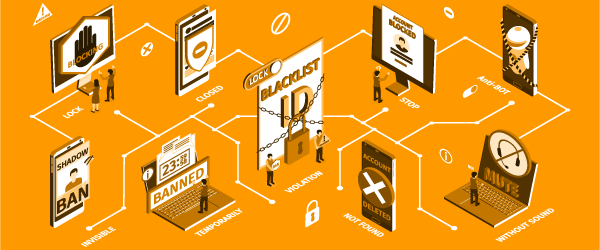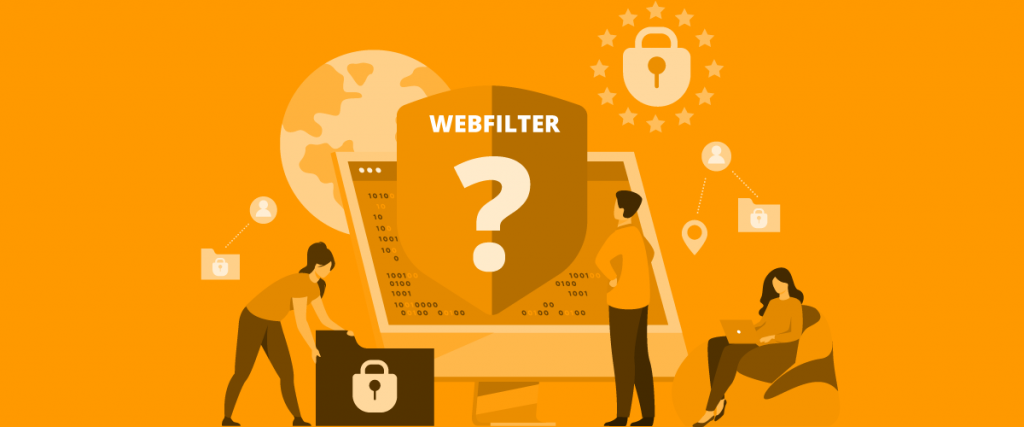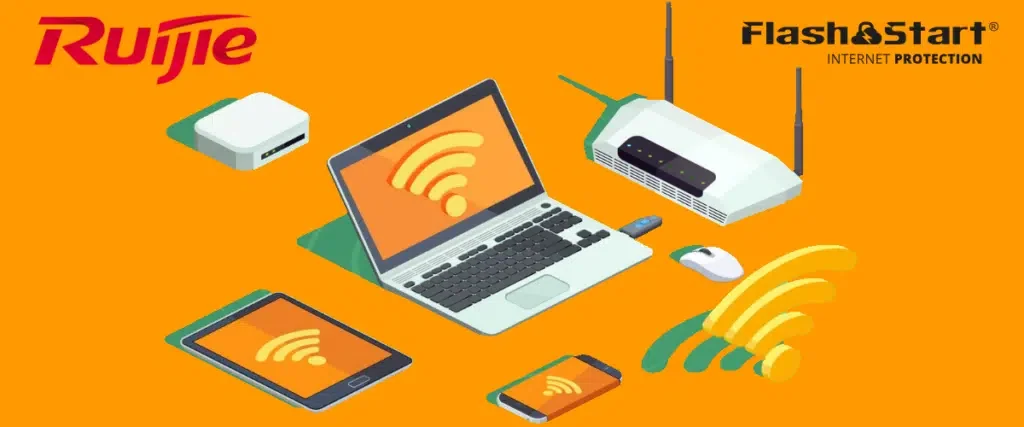
FlashStart: the DNS filter for ISPs and MSPs that integrates blocklists
The choice between monitoring internet contents and ensuring total freedom from online censorship has been a hot topic for decades now, not only among ISPs and connection providers, but also for those who must govern and take a political stance.
Today, there are more and more people who support the need for supervision in order to prevent the web from becoming an anarchic and highly dangerous place for all of humanity.
In addition to the ethical and sociological motivations, content intelligence is also an increasingly ne-cessary technical issue. In fact, it is precisely ISPs that are constantly finding themselves with blacklisted public IPs, as users repeatedly happen upon compromised pages, and the IP loses repu-tation, resulting in slowdowns and restrictions.
Together, we will search for the best solution by addressing the following topics in order:
1. The data which indicate the need for a more secure internet
Five billion out of eight billion inhabitants connecting to the internet every day is a figure that alone should alert the public to the dangers of uncontrolled surfing. If we then consider that 4.7 billion use social networks, that the average internet connection lasts about seven hours, and that illicit and morally objectionable contents are growing exponentially, then the likelihood of coming across inappropriate pages during the day becomes more and more of a certainty, especially for the youn-ger segment that has tripled its online presence in a decade.
Parental control systems, safe search filters implemented by various browsers, and the policies of various social networks are not enough to curb the dangers of inappropriate surfing.
The new digital native generations are accustomed to bypassing control systems and, consequent-ly, are more exposed to inappropriate contents which could negatively impact their growth.
In addition to the psychological and educational damage to minors, another serious problem should be pointed out. Crime, in general, is moving from the streets to the net, because illicit online activi-ties are increasingly profitable, whether one is talking about blackmail and data theft or illegal sales.
For this reason, many governments around the world are aligning themselves in favor of online con-trols and protection systems. Many administrations are conducting intelligence activities on the web, collecting reports through police agencies and tools which monitor the regularity of telecom-munications, and drawing up actual lists of dangerous web pages.
We mentioned some examples at the beginning, namely Indecopi “lista negra” (Peru) and the bloc-klists of CTIRU (UK), AGCOM Customs and Monopolies Blacklists (Italy), etc.
2. Limitations of blocklists compared to DNS filtering with AI
There are some substantial differences in effectiveness when browsing intelligence is entrusted to an advanced, global platform, such as FlashStart’s, rather than to a filtering system based on a go-vernment blacklist.
Each country has its own cyber threat intelligence, entrusted to agencies and entities which investi-gate primarily in their areas of expertise. Government blacklists are thus focused on hacking, fraud, sensitive contents, or more, depending upon the agency’s primary activity.
FlashStart, on the other hand, continuously scans the entire web with Machine Learning and has al-ready categorized all active pages into eighty-five selectable categories in order to prevent DNS access to domains that perform certain activities. The filtering does not only target categories of malware, piracy, and illicit contents. FlashStart users can, for example, block access to porno-graphic pages as a free personal ethical choice, or even restrict the use of games, music, sports, or social networks in the company, which, in themselves, have nothing illicit or immoral about them, but which may be undesirable as a source of distraction and, therefore, inefficiency.
FlashStart’s DNS-based malware and contents filtering thereby offers much broader customization options than Indecopi’s blacklist databases or CTIRU, AGCOM Customs and Monopolies Blacklists, etc.
In addition to the broad range of filterable contents, the second aspect that favors DNS prevention over blocklists deals with space/time effectiveness.
The Indecopi blacklist and the blacklists of CTIRU, AGCOM Customs and Monopolies, etc., are the result of individual country protection needs and contain addresses of dangerous web pages from all over the world that have been collected from internal reports, verified by their own bo-dies. However international the blacklisted addresses may be, we are still talking about a static and limited government list that is in no way comparable to FlashStart’s DNS survey, which for years has been using artificial intelligence to scan all active sites and has been cataloging all newly crea-ted domains.
FlashStart even offers an option to preemptively block newly created domains, precisely to avoid any risk and allow the artificial intelligence to analyze their activity in detail for thirty days before as-signing the relevant category. Indecopi blacklist databases and the blocklists of CTIRU, AGCOM Customs and Monopolies, etc., are updated very infrequently and, therefore, offer limited protection compared to DNS filters.
>> FlashStart protects you from a wide array of threats and blocks access to malicious sites ? Request a quotation or try it now
3. FlashStart integrates “Indecopi lista negra” and blacklists of CTIRU, AGCOM Customs and Monopolies (Italy), etc.
Since the DNS survey with Machine Learning is immensely larger than the collection of reports by a government agency, the question arises as to why FlashStart integrates such lists.
Domains included in government blacklists have already been cataloged by FlashStart, so they do not actually increase the security level of the platform; they just offer more configuration op-tions. Some countries legally require ISPs or government institutions to filter certain pages, so FlashStart, taking care to offer the highest level of customization, includes such lists in the options that can be activated in its dashboard.
ISPs, MSPs, and connection providers, in general, will be able to enable the required protection in their own countries simply by clicking on the relevant blacklist in the options found in the FlashStart control panel.
Without this option, ISPs would have to try to match filter categories with those censored by the go-vernment and verify that all blacklisted domains match, a time-consuming task saved by the Fla-shStart dashboard, where it only takes one click.
So, at this point, why haven’t the lists of all countries been integrated?
Because, in reality, many governments prefer not to disclose their surveys. If a government does not make them public, however, it cannot even require internet providers to use them. If the provi-ders are not required, FlashStart intelligence does not need them, and therefore they are not inte-grated…. very simple.
Let us now look at more details about the government blacklists mentioned.
3.1 Indecopi blacklists (Peru)
Indecopi, i.e., “Instituto Nacional de Defensa de la Competencia y de la Protección de la Propiedad Intelectual,” is the Peruvian body in charge of defending intellectual property rights, from trade-marks and patents to copyrights, inventions, and biotechnology. Indecopi’s work is recognized as a cultural standard for fair and free entrepreneurship in Peru, so its “lista negra” is a collection of situa-tions on the web which result in a wide-ranging threat to the economy and people.
3.2 CTIRU Blacklist (UK)
The Counter-Terrorism Internet Referral Unit – CTIRU – is the department of the Metropolitan Police that is responsible for removing terrorist-related illegalities from the internet, with the focus on the contents on British soil. The censorship work is carried out based on British legislation (Terrorism Act 2000 and 2006). The CTIRU Blacklist is basically an up-to-date database of URLs which enga-ge in illegal activity but which cannot be taken down because they are located in foreign domains and, therefore, outside of UK jurisdiction.
3.3 AGCOM Customs and Monopolies Blacklist (Italy)
The Authority for Guarantees in Communications – AGCOM in Italy – is an independent body reco-gnized by law, with supervisory and regulatory duties in the field of communications of any natu-re: electronic, audiovisual, publishing, postal, and, more recently, also online. The Italian Parlia-ment grants AGCOM the powers and limitations within which it can conduct inspections of data traffic and, consequently, compile blacklists of web pages with illegal activity.
Recent proposals include combatting piracy by blocking reported IP addresses and requiring that ISPs provide free parental filters to protect minors.
4. The best protection
We immediately raised the debate between online freedom and necessary censorship, pointing out that illicit online activities are the order of the day today, along with inappropriate contents.
The likelihood of phishing with data theft, solicitation, compromise by malware, or access to flagged contents is very high for increasingly connected end users. At the same time, there is a greater likelihood that the public IPs being used will end up being blacklisted and that the user will be left with slowdowns, tedious captcha requests, and mailboxes’ ending up in spam because they came from compromised addresses.
In order to avoid constant support requests and clogging of help desks, many ISPs around the world turn to FlashStart, as well as the MSPs of large corporations, government agencies, and educatio-nal institutions.
FlashStart’s artificial intelligence DNS filtering is effective, always up-to-date, and easily program-mable. It is also among the fastest and most stable globally, installs in minutes, and is so compliant with regulations that it integrates national government blacklists, some examples of which we have mentioned.
Another crucial advantage of FlashStart over its American competitors is that, being the European leader in DNS security, it has a multilingual approach, which means that its site and control panel are not only in English, but also in Spanish, German, and Italian, and it offers continuous chat sup-port, not through bots.
>> FlashStart is totally in the cloud and easily activated ? Request a quotation or try it now
You can activate the FlashStart® Cloud protection on any sort of Router and Firewall to secure desktop and mobile devices and IoT devices on local networks.







